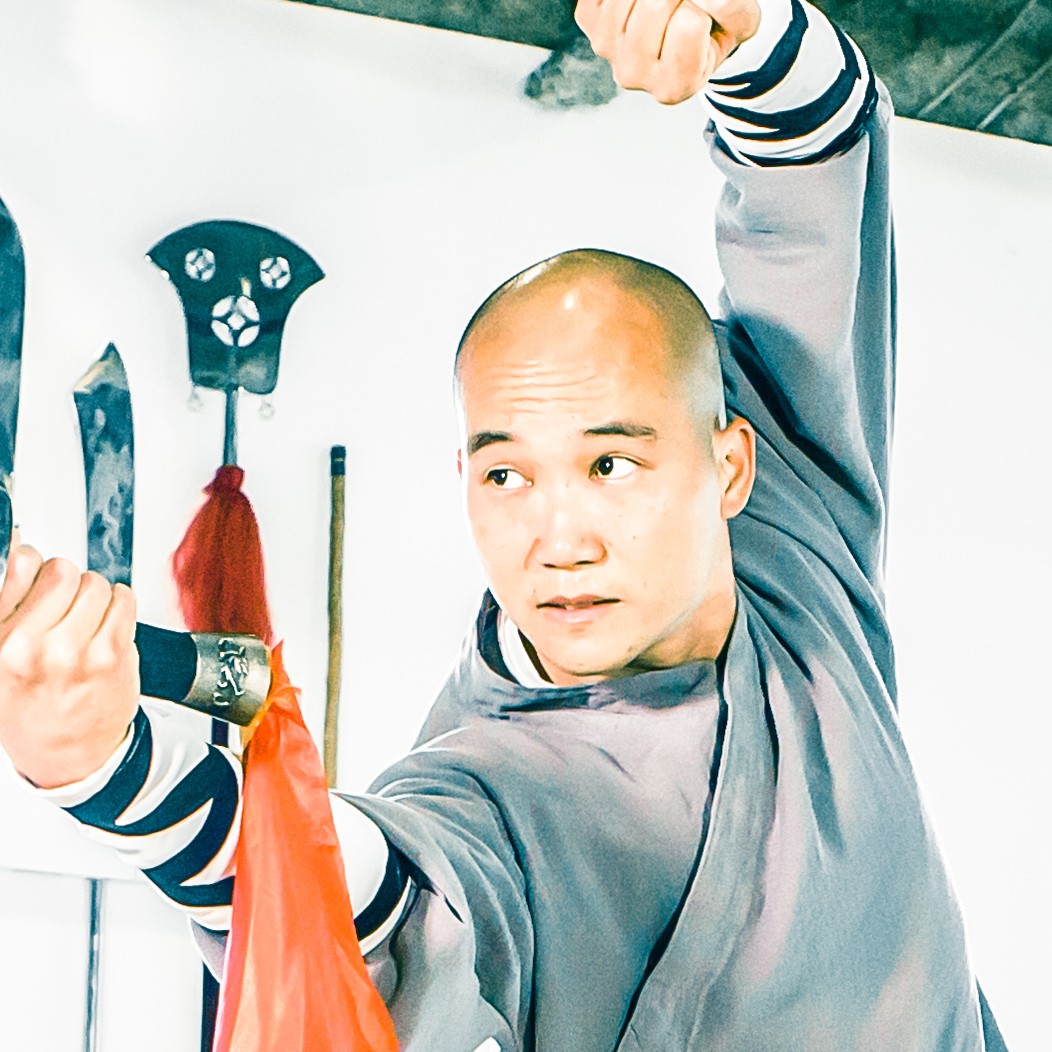Wisdom

What is wisdom, and why is it important? Learn what the ancient Shaolin teachings have to say about it, and how we can renew our passion to actively pursue wisdom.
You can watch a recorded workshop session with Master Dao on this subject here:
https://www.stqitoronto.com/index.php/s/b/learn-about-wisdom-with-clarity
What is Wisdom?
In the English dictionary, wisdom is generally defined as having good judgement about a particular idea or action. For example, one may question the wisdom of purposely breaking the law by driving 25% over the speed limit.
Now you might conclude immediately that this is indeed unwise. Speeding is a bad idea because you risk getting into an accident or causing harm to others.
As you think that, an ambulance speeds by at 50% over the speed limit with its lights blinking and sirens blaring. Now you might conclude that it’s okay because it’s an emergency, so therefore it’s not unwise.
Does that mean that the supposed life of the person in the ambulance is more important than the safety of others?
What if someone you love is calling you on the phone and telling you they are in an emergency and then suddenly hangs up? You call back but their phone doesn’t pick up. If you do not rush there with your car, perhaps the person’s life is endangered. If you rush there, you put yourself and others at risk.
The problem with the modern-day definition of wisdom and its usage is that it tends to be attached to external ideas. For example, wisdom implies judgement of your actions and thoughts by others, that there is a right and wrong, and that another action could have been better (and therefore wiser).
There is something quite lacking here. If wisdom is associated with other people’s judgement, then we become externally focused - appeasing others and society to determine what wisdom is.
Let’s have a look at some quotes and sayings that are considered wise:
Confucius: “Life is really simple, but we insist on making it complicated.”
Helen Keller: “Life is a daring adventure or nothing at all.”
Albert Einstein: “Only a life lived for others is a life worthwhile.”
Elbert Hubbard: “The greatest mistake you can make in life is continually fearing that you'll make one.”
Mahatma Gandhi: “There is more to life than increasing its speed.”
Oprah Winfrey: “The biggest adventure you can take is to live the life of your dreams.”
Dalai Lama: “Our prime purpose in this life is to help others. And if you can’t help them, at least don’t hurt them.”
Benjamin Franklin: “In simple manners, all the secret lies. Be kind and virtuous, you’ll be blest and wise.”
Indeed, these are wise sayings, and no doubt they have helped many people. But what if you go against these sayings? Are you now unwise? How did these people come up with these wise sayings?
You may want to consider that these wise sayings are guidance, not wisdom.
Wisdom Must Include Self-Wisdom
What if wisdom is better defined as the understanding of yourself? i.e. how you perceive your perceptual reality, how you understand your many emotions, and how you interact with your environment? I call this ‘Self-Wisdom’.
With this inclusion, wisdom is no longer about right and wrong. It’s about understanding your place in the universe, your connection to nature, and the impacts of what you do and say to others.
If we apply ‘self-wisdom’ to the speeding example, and given your experience and knowledge in life, if you are able to calmly decide that speeding was the correct choice for you given the risks, then your decision is not necessarily unwise. The consequences of speeding, whatever that may be, will give you more experience so that the next time, you may make a different choice.
On the other hand, if you panicked when you got the call and made a decision out of emotion, without thinking through your options, and then suffered from the consequences, then the choice would be considered unwise, even if the result was the same! You may also suffer from regret.
Continuing this speeding example, what if you crashed your car but didn’t get hurt, and then found out later that your loved one wasn’t really in any danger, but that the phone had run out of battery?
Those with an understanding of self-wisdom, will be able to clearly know that there was not an emergency, but that there might be an emergency.
By having a relatively calm demeanor, one could have considered other options such as calling 911 (in Canada, dialling 911 on the phone is the hot-line for emergencies), calling a neighbor to check in, etc.
By respecting the law (and others), and understanding that there are consequences to our actions, one may decide not to speed, and instead accept that you are doing the best you can.
Wisdom therefore most include both the ideas of 'good judgement' and 'self-wisdom'.
What is Self-Wisdom?
Superficially, Self-Wisdom has 4 main components: 1) understanding the ego self, 2) working on perceptions, 3) managing emotions, and 4) working with the subconscious.
When you practice the awareness and management of these components, then in time you develop more and more Self-Wisdom, and therefore you can say your level of wisdom increases.
To learn more about self-wisdom, please refer to this article:
https://www.stqitoronto.com/index.php/s/b/the-principles-of-chan-dao-self-wisdom
In time, more articles will be written to help people better understand how to improve their Self-Wisdom in various ways.
Wisdom and Intelligence
Intelligence is not the same as wisdom but is associated. Generally, intelligence is understood as the totality of one’s mental abilities.
For example, one might be considered intelligent if one can score high grades in school because this requires memory and problem-solving abilities.
Others might be considered equally intelligent if they can do well in athletics because this requires quick decision-making and instant command of many physical body parts.
Yet another may be considered equally intelligent if they can sing well, play an instrument well, etc.
Intelligence involves many dimensions of mental faculties and there is no fair test to determine one’s relative intelligence.
There are components of intelligence that can support wisdom. For example, wisdom can be more easily developed if one has the ability to interpret the meaning of another person’s words of wisdom, whether it’s from a book, an internet blog, or someone conducting a speech; or if one has the ability to apply said wisdom.
Intelligence can also get in the way of wisdom. For example, someone with an exceptional memory may find themselves acquiring knowledge, and then mistaking that knowledge as wisdom. If there are multiple sources of knowledge in a particular subject, one might then get confused about which advice to follow.
Practicing self-wisdom will aid you in determining what the wise are really trying to say, so that you develop more wisdom and understanding without getting confused by the many layers of information and ideas around the world.
Relationship Between Wisdom and Suffering
Those who are wiser will have more positive energy and be less judgemental (i.e. be more accepting of others). They will feel less anxiety and stress, and know how to manage these better. Surely the wise are still humans and will still need to continue to learn from life.
But what sets them apart is self-wisdom. Introspection and understanding the self are necessary to understand our external environment better, which includes interaction with others.
Here are some more quotes about wisdom:
Buddha: “By three things the wise person may be known. What three? He sees a shortcoming as it is. When he sees it, he tries to correct it. And when another acknowledges a shortcoming, the wise one forgives it as he should.”
Camille Alice: “The wise lack for nothing. The foolish, meanwhile, cannot make good use of anything.”
Sandra Bullock: “Don’t aspire to be in these shoes. Walk-in your own. Everyone’s unique, and that’s what makes people exciting to watch… savour what you are and not what everyone else wants you to be.”
Buddha: “A man is not called wise because he talks and talks again; but if he is peaceful, loving and fearless then he is in truth called wise.”
Learning Self-Wisdom gives you more awareness of suffering, and this sets the stage for you to manage it. Put another way, Self-Wisdom promotes one to find peace and happiness.
Learn Wisdom from Others
Knowing that wisdom can help one to find peace and happiness, how could you not pursue it?
Although this article is promoting Self-Wisdom, it is not complete without the wisdom to interact with our environment.
Wisdom can be gained from observing yourself and others. Even a child’s interaction with their environment can teach you many things.
There are many resources to obtain guidance for wisdom - self-help books, online videos, blogs, etc. But I remind you that anything you read or watch can only be considered knowledge and is not wisdom itself. To actually develop wisdom, you need to put effort into observation and introspection.
By making Self-Wisdom your learning priority, other sources of wisdom will make more sense, be more useful, and help you in your journey in life.
Shàolín Chándào perspective:
Self-wisdom teaches you who you are at the core, and with continued practice, you will no longer see a need for wise sayings.








 Written by Dao on Monday, November 13, 2023
Written by Dao on Monday, November 13, 2023











 YouTube
YouTube Instagram
Instagram Facebook
Facebook Discord
Discord